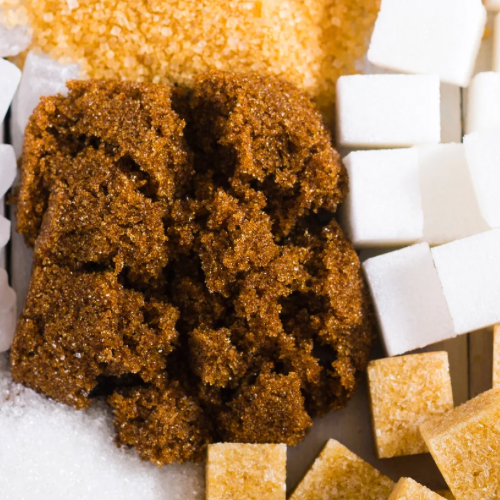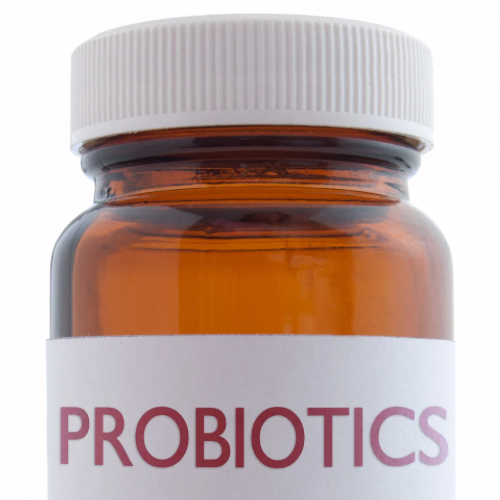
Probiotics & Gut Health: Understanding the Power of Your Body Chemistry
- Kris
- Jul 31
- 4 min read
How to Strengthen Your Gut, Balance Your Body, and Feel Better From the Inside Out
You’ve probably heard the phrase “trust your gut”—but did you know your gut health actually influences how you feel, think, and even how effectively your body burns fat, absorbs nutrients, and manages inflammation?
🔬 What Is Gut Health and Why Does It Matter?
Your gut isn’t just a digestive tube—it’s a thriving ecosystem made up of over 100 trillion bacteria, fungi, viruses, and microbes. This community, known as your gut microbiome, has a direct hand in:
Breaking down food into absorbable nutrients
Producing essential vitamins like B12 and K
Regulating immune function (70% of immune cells live in the gut)
Creating neurotransmitters like serotonin, dopamine, and GABA
Maintaining the integrity of your gut lining (leaky gut = inflammation)

When your gut is in balance, you have steady energy, strong immunity, fewer cravings, better sleep, and clearer thinking. When it’s out of balance (a state called dysbiosis), you may experience:
Bloating, gas, and irregular digestion
Food sensitivities
Skin flare-ups (like eczema or acne)
Brain fog and low mood
Hormonal imbalances
Sluggish metabolism and weight gain
🦠 What Are Probiotics and How Do They Work?
Probiotics are live “good” bacteria that can be consumed through certain foods or supplements. Their job is to restore balance in your gut microbiome by:
Crowding out harmful bacteria
Reducing inflammation
Strengthening the gut barrier (preventing leaky gut)
Enhancing nutrient absorption
Supporting mood and cognition by aiding neurotransmitter production

The most common beneficial probiotic strains include:
Lactobacillus (improves digestion and reduces inflammation)
Bifidobacterium (supports immune function and gut lining)
Saccharomyces boulardii (a yeast strain helpful after antibiotics)
⚗️ Gut Health and Body Chemistry: A Two-Way Street
Here’s the important part—your gut bacteria directly impact your body chemistry, including:
Hormones: Your gut helps regulate estrogen, cortisol, and insulin. Imbalance here can disrupt weight, mood, and menstrual cycles.
Neurotransmitters: Over 90% of serotonin (your “happy” chemical) is made in the gut. Anxiety, depression, and sleep issues often start in the microbiome.
Inflammation: Gut dysbiosis fuels systemic inflammation, which affects joint pain, skin, metabolism, and recovery after exercise.
Cravings and Blood Sugar: Certain bacteria can influence what you crave—especially sugar and carbs—and affect how efficiently your body manages glucose.

🌱 How to Improve Your Gut Health Naturally
Building a healthier gut doesn’t mean taking a pill and hoping for the best. It takes a consistent, intentional approach—but the benefits are worth it. Here’s how to start:
Prebiotics feed your good gut bacteria and help them grow. Add more of these to your daily plate:
Garlic, onions, leeks
Asparagus, dandelion greens, chicory root
Oats, apples, bananas (especially slightly green)

2.Incorporate Probiotic-Rich Foods
Live cultures help re-seed your gut with beneficial bacteria. Try:
Yogurt with active cultures
Kefir (fermented milk or water-based)
Sauerkraut and kimchi (unpasteurized)
Miso, tempeh, and natto
Kombucha (watch for added sugars)
3.Consider a Probiotic Supplement
If you’ve taken antibiotics, experienced digestive issues, or live with high stress, a high-quality probiotic can help restore balance. Look for:
Multiple strains (Lactobacillus + Bifidobacterium)
At least 10–30 billion CFUs (colony-forming units)
Delayed-release capsules for better survival through the stomach

4.Reduce Gut Disruptors
Avoid the things that fuel harmful bacteria and inflammation:
Added sugars and processed carbs
Excess alcohol
Artificial sweeteners
Frequent NSAID use (like ibuprofen)
Chronic stress (more on that next)
5.Manage Stress, Mindfully
Your gut and brain are connected via the gut-brain axis—a two-way communication channel. Chronic stress disrupts digestion, suppresses immunity, and alters gut bacteria. Try:
Deep breathing exercises or meditation
Gentle movement like Pilates, walking, or yoga
Laughing, sleeping well, and creating boundaries

6.Stay Active
Movement helps keep your digestion moving and encourages the growth of beneficial bacteria. Daily movement—even 20 minutes—makes a difference.
7.Sleep Like It Matters
Disrupted sleep negatively impacts gut microbiota diversity. Aim for 7–9 hours of quality sleep and a consistent bedtime routine.

✨ Signs Your Gut is Getting Healthier
Once you start implementing these changes, here’s what you might notice:
More regular, easier digestion
Less bloating and discomfort after meals
Stable mood and better focus
Fewer sugar cravings
Clearer skin
Improved recovery after workouts
Stronger immune resilience
💡 Final Thoughts: Healing From the Inside Out
Probiotics and gut health aren’t just a wellness trend—they’re essential to long-term health and vitality. By understanding and nurturing your unique body chemistry, you give yourself the power to feel better, move better, and live better.
By clicking the link below, you can access a treasure trove of episodes that cover various aspects of health and wellness. From expert interviews to practical tips and advice, the Kore Kast offers a comprehensive resource to help you on your journey to a healthier lifestyle.





Comments